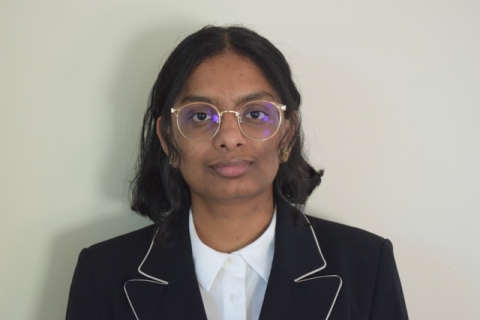Sadia Nourin - Sparrell Family Scholar
Undergraduate Scholar, Computer Science & Finance
University of Maryland
Research:
Sadia’s research focuses on measuring and evading nation-state censorship to enable free and open communication on the Internet. She seeks to find ways to measure censorship in small countries, which are often overlooked by the censorship community, without the use of volunteers or vantage points.
Describe the expected benefit of your research to society:
Nation-state censorship threatens the free and open communication of many countries in the world and is a tool oppressive regimes use to silence activists who oppose the government, curb political dissent during protests, and ban “immoral” content deemed inappropriate for citizens. This censorship is often extensive on the Internet, in which state actors enact strict filtering policies to control and regulate all information and communication online. To grant Internet freedom to millions of people under such regimes, researchers have been measuring and circumventing censorship, but they often only focus on large nation-states such as China, Iran, and Russia. Smaller nations with low Internet penetration rates and small populations are often overlooked when it comes to censorship research, even though many employ censorship as extensively, if not more, as powerful nations and may have harsher laws surrounding the access of censored material and censorship circumvention tools. My research aims to fill this gap in the censorship research community by measuring and circumventing the censorship systems of small countries. I follow a longitudinal approach to discover patterns in censorship that may arise and fall, as studying censorship at a single point in time does not give us the full picture. During times of political unrest, state actors can ramp up censorship, causing previously discovered censorship evasion strategies to fail and more domains on the Internet to be censored. However, soon afterward, state actors can lax their censorship, perhaps due to “election” season, reversing any previous findings.
Community Service, Contributions to DEI, Volunteer Work:
My intent on impactful research that serves a greater good can be traced back to my Honors College seminars. I was forced to delve into uncomfortable topics on how immigration has forced different marginalized communities into oppression throughout U.S. history. I was challenged to understand how metropolitan cities became a hierarchy system, where those at the bottom of the ladder were not able to enjoy even lush green parks. At the end of my seminars, I created a plan that would help solve these modern-day issues, focusing on immigration reform execution and green city transformation. I carry this resolve to help with social justice even in my research today.

